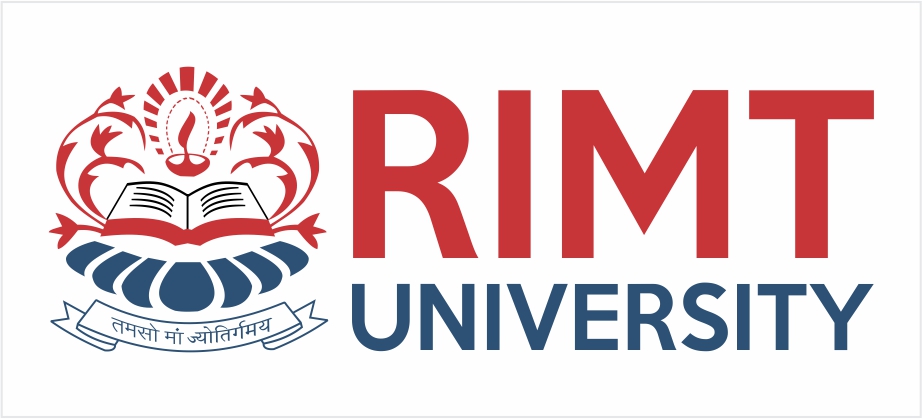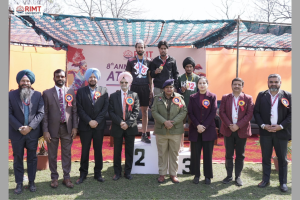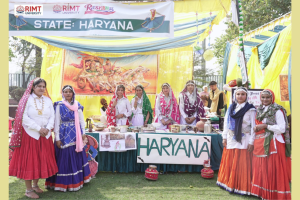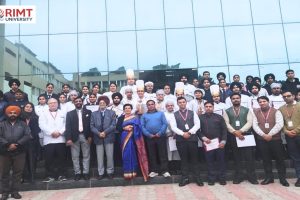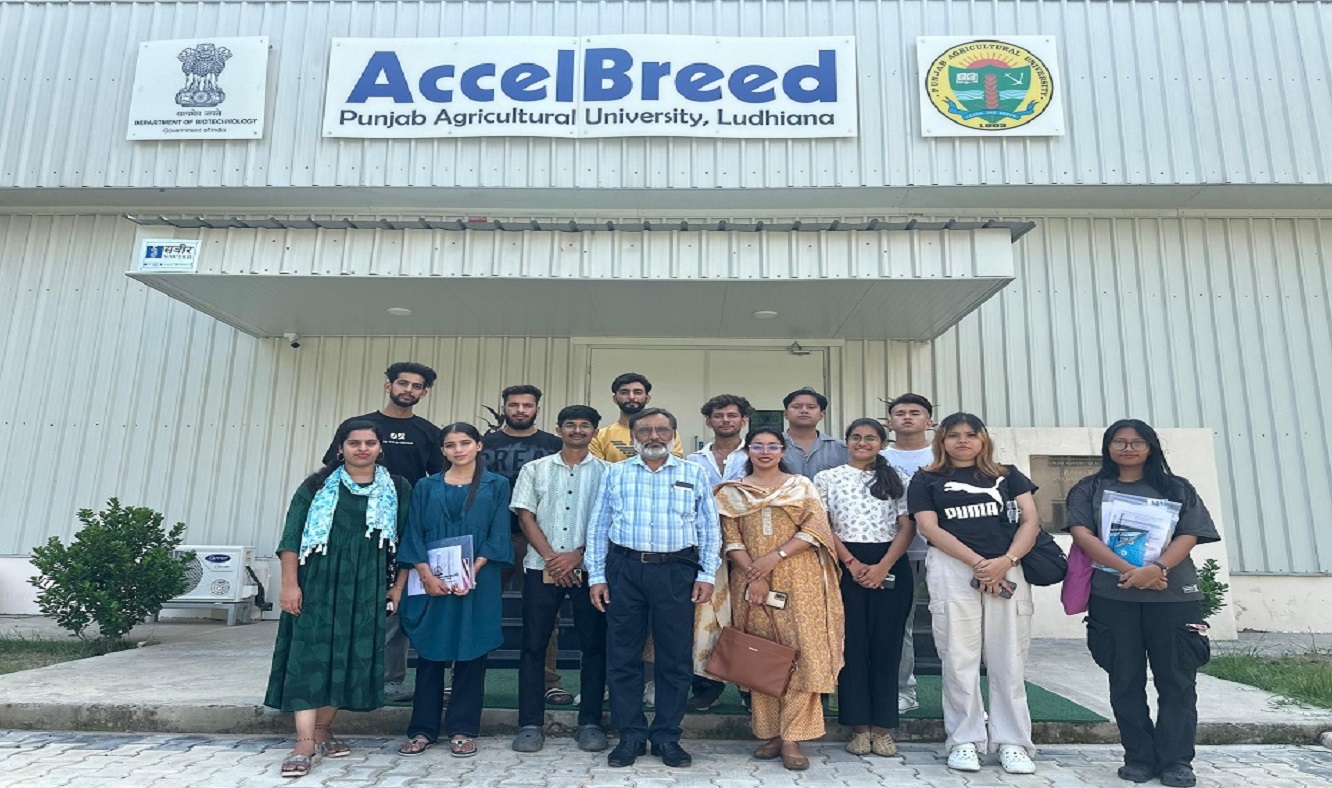
RIMT University B.Sc. Agriculture Students Explore Innovative Agricultural Technologies at the PAU
Students from the B.Sc. Agriculture VII Semester of RIMT University, recently had the opportunity to visit Punjab Agricultural University (PAU) to get acquainted with the advanced, innovative and state-of-the-art agricultural facilities and technologies, accompanied by Dr Sapna, their faculty mentor, shared Dr Pardeep Kumar Chhuneja, Dean Agriculture of the RIMT University. The visit was part of their Rural Agricultural Work Experience (RAWE) programme and aimed to expose students to groundbreaking technologies and practices in modern agriculture.
The educational tour covered several advanced facilities at PAU, including:
Speed Breeding Facility: Students observed how controlled / simulated environmental conditions accelerate the development of new crop varieties, enhancing the speed and efficiency of crop breeding.
Tissue Culture Laboratories: The laboratories demonstrated plant propagation techniques that produce disease-free plants, underscoring the role of tissue culture in crop improvement and conservation.
Dr Gurdev Singh Khush Museum: This museum celebrated the contributions of Food Laureate, Dr Gurdev Singh Khush to rice genetics and breeding, offering students insights into the history and impact of his work on global food security.
Mushroom Cultivation Unit: Students explored advanced mushroom farming techniques and learned about the nutritional benefits and economic potential of mushrooms.
Hydroponics and Aeroponics Facilities: The visit highlighted soil-less farming methods, with demonstrations on how plants are grown using nutrient-rich solutions and mist, showcasing innovative approaches to urban and resource-efficient agriculture.
Post-Harvest Processing Plants: Students examined various techniques for processing and preserving harvested crops, emphasizing the importance of effective post-harvest management in reducing waste and improving market value.
Vermicompost and Biogas Units: The units showcased sustainable waste management practices, including the conversion of organic waste into compost and biogas, highlighting their environmental benefits and role in promoting sustainability.
Apiculture Facility: The students visited the historical apiary from where Italian honey bee was released in India which has ushered in industrial and commercial breakthrough in the field leading to sweet revolution. The apiculture facility provided insights into hive management and hive products production, illustrating the critical role of bees in pollination and agriculture. The hives of stingless bees were also acquainted to the students.
Sericulture Center: Students learned about silk production from silkworm rearing to harvesting, emphasizing the economic importance and potential of sericulture.
Biocontrol Unit: The students visited the Biocontrol Unit which showcased the various options of using insects itself including various species of predators and parasitoids for the management of harmful insect-pests. The students were acquainted with the mass rearing technologies of the biocontrol agents.
The visit was a significant learning experience for the students, offering them practical knowledge and inspiration to drive future advancements in agriculture. The exposure to these innovative facilities will facilitate in their capacity building towards their academic and professional development, preparing them to contribute effectively to the agricultural sector.
About the Punjab Agricultural University (PAU): PAU is renowned for its cutting-edge research and education in agricultural sciences. The university’s facilities and expertise play a pivotal role in advancing agricultural practices and technologies in India and beyond.
